Post High School Self-cont serves 93 students in grades Kindergarten-12.
The student:teacher ratio of 23:1 is higher than the Utah state level of 21:1.
Minority enrollment is 21% of the student body (majority Hispanic), which is lower than the Utah state average of 29% (majority Hispanic).
Quick Stats (2025)
- School Type: Special education school
- Grades: Kindergarten-12
- Enrollment: 93 students
- Student:Teacher Ratio: 23:1
- Minority Enrollment: 21%
- Source: National Center for Education Statistics (NCES), UT Dept. of Education
Top Rankings
Post High School Self-cont ranks among the top 20% of public schools in Utah for:
Category
Attribute
Community Size
School Overview
Post High School Self-cont's student population of 93 students has grown by 36% over five school years.
The teacher population of 4 teachers has declined by 20% over five school years.
School Type
Grades Offered
Grades Kindergarten-12
Total Students
93 students
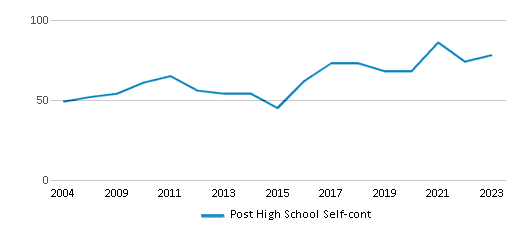
Gender %
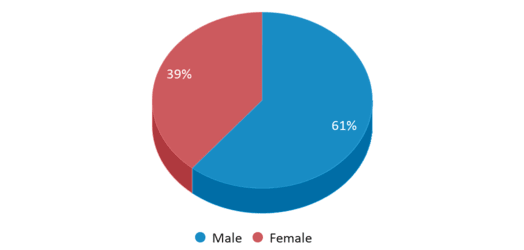
Total Classroom Teachers
4 teachers
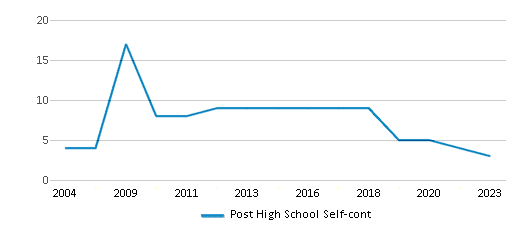
School Rankings
The diversity score of Post High School Self-cont is 0.35, which is less than the diversity score at state average of 0.46. The school's diversity has stayed relatively flat over five school years.
Student : Teacher Ratio
23:1
21:1
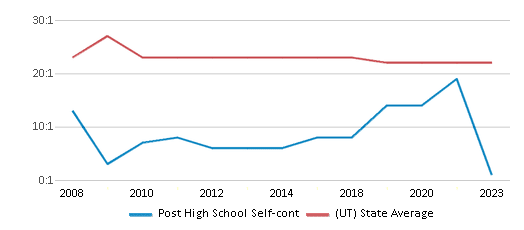
American Indian
1%
1%
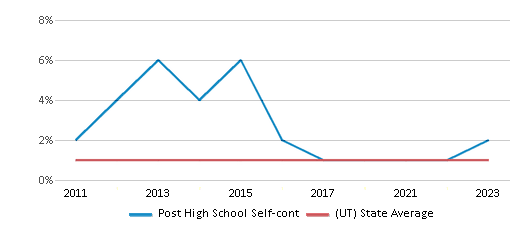
Asian
1%
2%
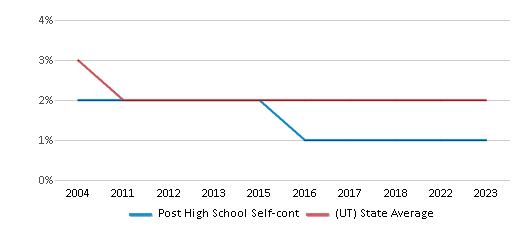
Hispanic
17%
20%
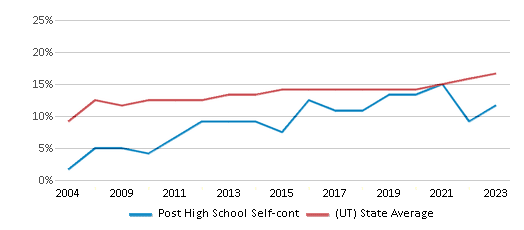
Black
1%
1%
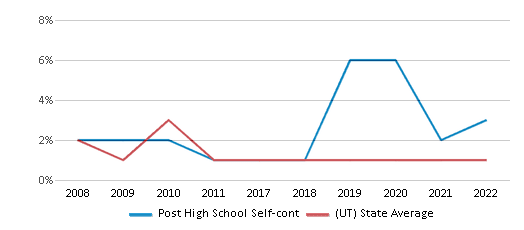
White
79%
71%
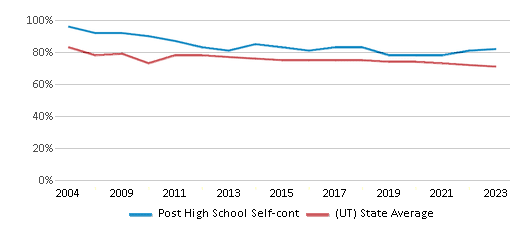
Hawaiian
1%
1%
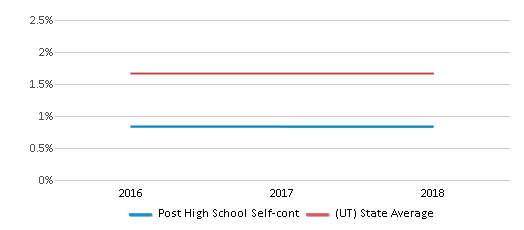
Two or more races
n/a
4%
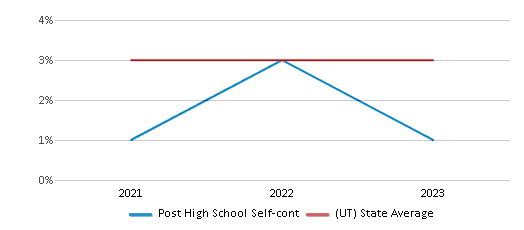
All Ethnic Groups
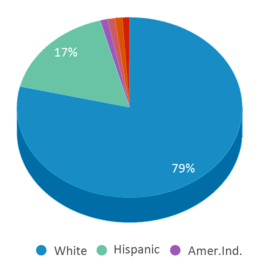
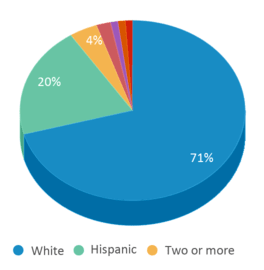
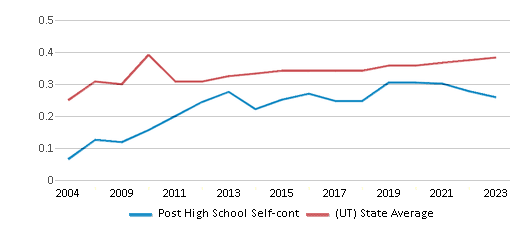
Eligible for Free Lunch
37%
24%
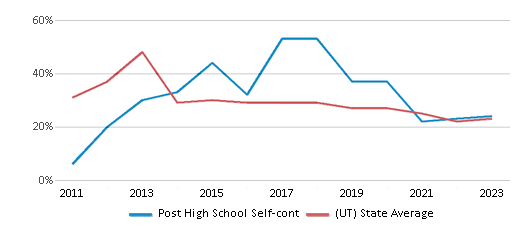
Eligible for Reduced Lunch
2%
6%
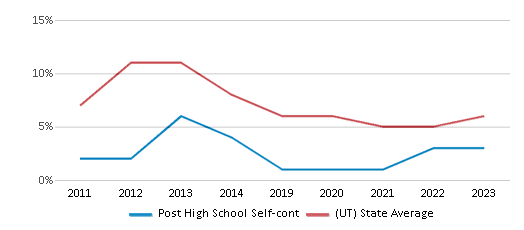
School Statewide Testing
School District Name
Source: National Center for Education Statistics (NCES), UT Dept. of Education
Profile last updated: 02/09/2025
Frequently Asked Questions
How many students attend Post High School Self-cont?
93 students attend Post High School Self-cont.
What is the racial composition of the student body?
79% of Post High School Self-cont students are White, 17% of students are Hispanic, 1% of students are American Indian, 1% of students are Asian, 1% of students are Black, and 1% of students are Hawaiian.
What is the student:teacher ratio of Post High School Self-cont?
Post High School Self-cont has a student ration of 23:1, which is higher than the Utah state average of 21:1.
What grades does Post High School Self-cont offer ?
Post High School Self-cont offers enrollment in grades Kindergarten-12
What school district is Post High School Self-cont part of?
Post High School Self-cont is part of Washington School District.
School Reviews
Review Post High School Self-cont. Reviews should be a few sentences in length. Please include any comments on:
- Quality of academic programs, teachers, and facilities
- Availability of music, art, sports and other extracurricular activities
Recent Articles

What Is A Charter School?
Explore the world of charter schools in this comprehensive guide. Learn about their history, how they operate, and the pros and cons of this educational innovation. Discover key facts about charter schools, including admission policies, demographics, and funding, as well as what to look for when considering a charter school for your child.

10 Reasons Why High School Sports Benefit Students
Discover the 10 compelling reasons why high school sports are beneficial for students. This comprehensive article explores how athletics enhance academic performance, foster personal growth, and develop crucial life skills. From improved fitness and time management to leadership development and community representation, learn why participating in high school sports can be a game-changer for students' overall success and well-being.

February 05, 2025
Understanding the U.S. Department of Education: Structure, Impact, and EvolutionWe explore how the Department of Education shapes American education, from its cabinet-level leadership to its impact on millions of students, written for general audiences seeking clarity on this vital institution.





